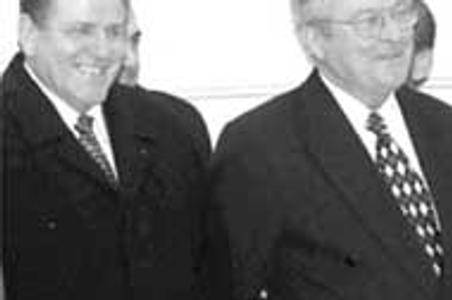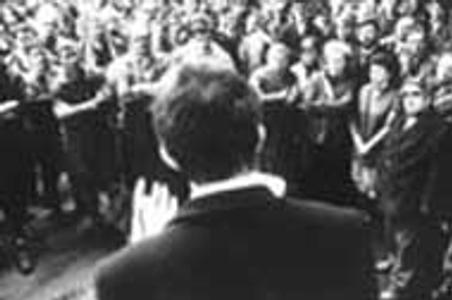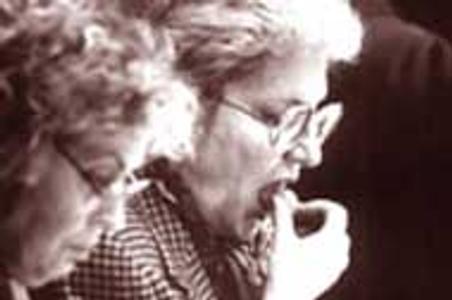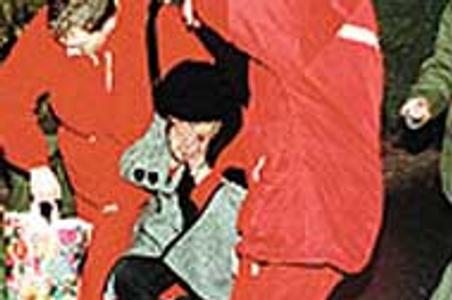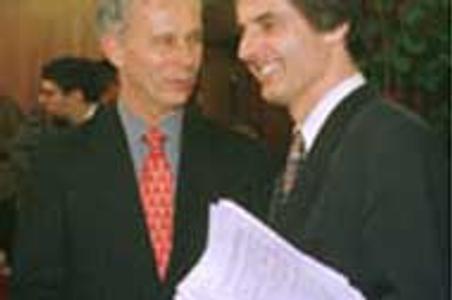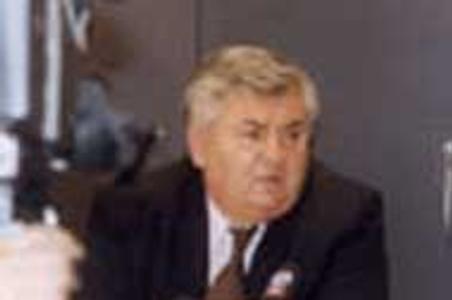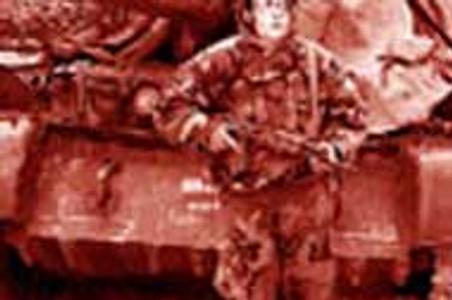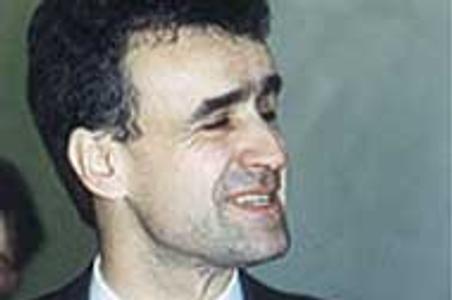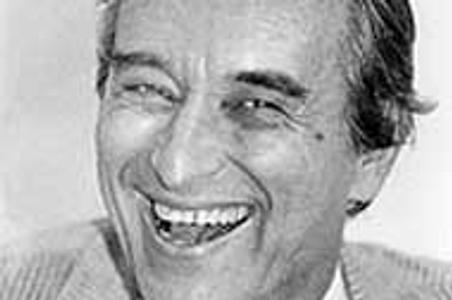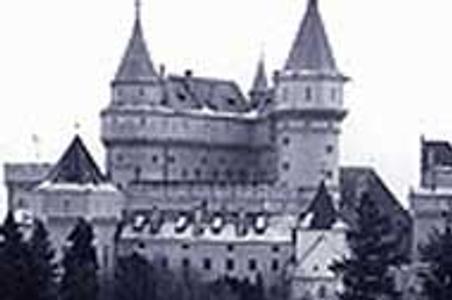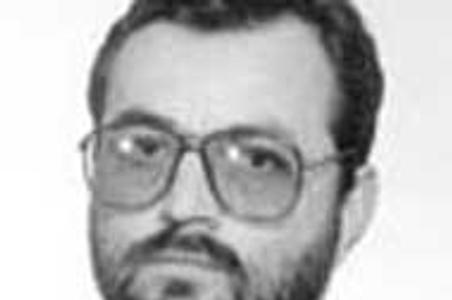Archive of articles - January 1999, page 3
If you desire to read an old article, use the search bar or select the publication date.
Markets await economic package specifics
The Slovak crown eased again on January 15, following regional trends, as Brazil's financial problems cast a cloud over emerging markets worldwide. The crown tested levels between 42.800/900 against the Euro, but over the next few days the instability caused by the Brazilian devaluation began to dissipate.In the third week of January, the market was very quiet and the crown fluctuated in narrow range between 42.650/750 against the Euro. The market did not expect any sharp movement in the short term, but there is a clear potential for a weakening of the crown during the next few months.On the money market, the rapid easing of the yield curve in early January came to an end during the Brazilian crisis, and the yield curve has since again flattened.
New president to lift political tradition
This spring, when Slovaks become the first citizens in post-communist central Europe to popularly elect their president, their challenge will be to select a candidate who will lift the country above bitter partisanship towards stronger democratic values, according to analysts and politicians.Slovakia has been without an elected head of state since March 1998 when president Michal Kováč's five-year term in office expired and a polarised parliament was unable to agree on his successor.On January 14, the country's parliament approved a constitutional amendment on direct presidential elections, according to which the ballot could take place by the end of April at the earliest.
Brazil jitters knock crown into spin
The Slovak crown appreciation during the first few days of this year was stopped by the high domestic interest in buying hard currencies on January 12. Later, however, emerging market currencies took a serious knock as nerves over Brazil weighted on markets worldwide.On January 13, worries that Brazil may be sliding into political and financial crisis dragged down emerging market currencies. Eastern European currencies weakened by 2-3% in one day, which also had an impact on Slovak financial markets. The Euro-Slovak crown exchange rate hit bottom on January 11 and early January 12, hitting the level of 42.420/470. Later, the crown gradually weakened and moved to its January 13 high of 42.860/900 EUR-SKK.
Jobless rate climbs to 16.4% in December
The total unemployment rate in Slovakia hit 16.4% at the end of December, the highest level in the country's history. The increase came as the new cabinet announced hikes to energy, gas, transport and housing prices, leading economic analysts to warn of a social fall-out in the country's regions."This rate is the highest in our history," said Martin Barto, a senior analyst with ING Barings investment bank. "Nobody has experience of such high figures, and the National Labour Office expects the rate to climb in the first quarter of this year. This could lead to problems in some regions connected with the price increases."The absolute number of unemployed people increased by 24,000 in December to 427,125. The official unemployment rate, calculated by the National Labor Office from the number of unemployed available for work, was reckoned at 15.6%, an increase of 3.1% year-on-year. Július Homola revealed the statistics at a news conference on January 11.
Oľga Keltošová - the HZDS 'wants to cooperate'
Oľga Keltošová is a parliamentary deputy for the opposition Movement for a Democratic Slovakia (HZDS) and a member of the parliamentary Social Affairs Committee. In recent months, Keltošová has emerged as the chief spokesperson of a moderate wing within the HZDS that seeks to reinvigorate the movement after its fall from power in October, 1998.From 1994 to 1997, Keltošová was the Minister of Labour, Social Affairs and Family in the government of former Premier Vladimír Mečiar. In March 1998 she was appointed Slovakia's ambassador to the United Nations' permanent mission in New York, but returned from her posting before the September national elections due to internal problems within the HZDS.
Former minister Ján Ducký murdered
Ján Ducký, former Minister of Economy in the cabinet of Prime Minister Vladimír Mečiar, was murdered by an unknown killer on January 11 in Bratislava. The killing came only three days after Economy Ministry Ľudovít Černák announced that Ducký was under investigation for gross financial mismanagement of the giant SPP state gas company that he led from April 1997 to November 1998.By January 14, police had still not identified the assassin nor a motive for the crime, and would say only that Ducký had taken three bullets to the head from a 7.65 millimeter pistol that probably had a silencer attached. "We have obtained a description of one man that was present on the scene of the crime at the time of the murder," said Jaroslav Penc, head of the Bratislava Regional Police Headquarters, at a January 11 press conference.
US Congress delegation says Slovakia on track for NATO
The highest level U.S. delegation to visit Slovakia since Hilary Clinton came to Bratislava in 1996 said on January 12 that the country's new government was making significant progress in its efforts to join NATO.Slovakia was excluded from the first wave of applicant countries to join the defence alliance because of the previous government's failure to respect the democratic standards required for NATO membership.The former chairman of the House International Relations Committee, Benjamin A. Gilman, told journalists he was confident progress was being made to meet the necessary political conditions to join the alliance.
1998 a catastrophic year for lonely Slovak equity market
The Slovak equity market turned in a very unimpressive performance in 1998. The official SAX index lost points consistently during the whole year and closed at 94.0 on 18 December, which represents a 48% decline since the beginning of the year. Turnover on the Bratislava Stock Exchange reached only 43.1 billion Sk, compared to the 84.7 billion Sk in 1997.The steady decline of Slovak stocks reflected the country's worsening economic situation. Foreign investors were discouraged by political instability and legislative flaws, and there is no reason for optimism in 1999. Liquidity remains very limited and even if the FNM privatisation does decide to float shares of strategic companies, significant changes and radical improvements should not be expected.
Ján Ducký: "Playing with fire"
Ján Ducký was born in 1944 in the western Slovak village of Lehota pod Vtačnikom. When he was one year old, his father was captured by the Gestapo along with his maternal grandfather and uncle and accused of collaborating with the Slovak partisans in the Slovak National Uprising. They were sent to the Mathausen concentration camp, where Ducký's father was killed in May, 1945.After a difficult and poor childhood, Ducký attended the Economic University in Bratislava, graduating in 1967. He then went to work for the Slovakotex textile firm in Trenčin, becoming Sales Director after some years. From 1983 to 1989, Ducký worked at the Ministry of Industry under the communist regime.After the fall of communism in December 1989, Ducký was nominated to the post of Minister of Industry by the communist party, a post which he held until June 1990.
Massive DMD Holding ducks state repo bid
A government attempt to claw back its majority share in Slovak engineering giant DMD Holding was stymied at the firm's January 5 extraordinary shareholders' meeting. The meeting elected a new supervisory board and board of directors, but the firm's old guard insisted that in accordance with changes made to the company's statutes on September 10, 1998, the meeting did not have the necessary quorum to make the switch.On October 29, according to the independent SITA news agency, the FNM state privatisation body transferred from its portfolio a 42% stake in DMD Holding to a new firm, DMD Progress. The move lowered the state's share in DMD Holding, which is a major shareholder in all large engineering firms in Slovakia, from 60.72% to 18.8%, resulting in a de facto privatisation of the firm.
The first, but not the last
At some time between noon and one o'clock on a dreary January afternoon, former Economy Minister and SPP state gas monopoly chief Ján Ducký went downstairs in his apartment building to collect his mail. Someone waiting for him in the lobby with a silenced pistol put three bullets in his brain and fled, leaving Ducký in a pool of blood on the floor.At the time of his death, Ducký was under investigation for defrauding the SPP gas utility and the state of hundreds of millions of Slovak crowns. While police have not yet solved the crime, there can be little doubt that Ducký's murder had something to do with his activities as a politician and a state-appointed official. There can be little doubt, too, that as the new cabinet moves ahead with prosecutions of former state functionaries for theft of state property, Ducký's will not be the last political killing in this country.
Volkswagen plans big growth in 2000
Volkswagen Slovakia a.s., the Slovak unit of Volkswagen AG, said on January 13 it would build new construction facilities and open a new plant to double its production to 250,000 cars by 2000."Following a decision...to double car production, VW Slovakia will in 1999 build new production halls... Construction of new lacquering capabilities will cost more than 400 million marks ($237.5 million)," the company said in a statement.Volkswagen originally took a stake in its Bratislava car plant, Bratislavské Automobilové Závody (BAZ), in 1992, and became its sole owner in December 1995.
Reform of ruling party gains pace
A conservative faction within the ruling SDK party decided on January 9 to re-establish their lapsed Christian Democratic Movement (KDH) as a viable political party by allowing SDK deputies simultaneously to hold KDH membership. Political analysts said that far from destabilising the ruling coalition, the decision actually strengthened the government by allowing SDK deputies to fly their political colours with clear consciences."This decision has stopped the process of SDK disintegration," said Grigorij Mesežnikov, a political scientist with the Institute for Public Affairs. "It increases stability within the SDK, and means that the party has a real chance to remain the strongest element within the government coalition."
Milan Markovič returns to STV
Milan Markovič, a famous Slovak television humorist banned by former Prime Minister Vladimír Mečiar, is back on Slovak public television for the first time in four years.Markovič staged a triumphant return of the popular 60 minute television variety show "An Evening with Milan Markovič" on January 9. Flanked by Prime Minister Mikuláš Dzurinda and humorist Milan Lasica, Markovič poked fun at former government politicians in his accustomed ironic style. "You shouldn't be so cheeky, even if you have been four years in quarantine," said Dzurinda in response to Markovič's needling.
Economic package approved
The Slovak cabinet finally approved its draft proposals to heal the nation's macroeconomic imbalances on January 7, but foreign analysts have already criticised the 'economic package' for being too short on specifics and too long in preparation."We have seen the government's desire, knowledge and understanding of the need to implement reform, but I think that the problems they are facing are much bigger that they understand right now," said Matthew Foger, a senior economist with Merrill Lynch in London, on January 13.Foger visited Slovakia from January 5-8 and discussed the economic package with Finance Minister Brigita Schmögnerová, vice-premier for economy Ivan Mikloš and other cabinet officials. "We've discussed the main issues and now we need to see more specifically what they intend to do," Foger said.
Bojnice Castle - fairytale chateau keeps its charm
Rising proudly above the forested Strážov Hills of the upper Nitra Valley, Bojnice castle evokes all the most romantic images of knights, damsels, and dragons. The massive structure has it all, from circular towers with neo-gothic detailing and pointed roofs, to the moat encircling the rock on which it rests. It also has an impressive history.If the sight of Bojnice doesn't leave you speechless, the festive atmosphere the locals generate ought to do the trick. The tour guides, decked out in costumes from the Middle Ages, entertain guests with skits and ceremonies throughout the year. Special visitors stop in for special occasions: at Christmas time, the Three Kings present gifts to the baby Jesus inside the enormous Hunyadyho Hall, adorned with paintings collected by Count Ján Pálffy. Outside the castle walls, families sled down frosty embankments and skate on the frozen moat. Lovers wander around the grounds and through the zoo next door.
Jaroslav Chlebo - Congressmen sent "powerful message"
The winds of change that swept through Slovakia after September 1998 parliamentary elections returned to state posts many people who had been banished by the previous government of Prime Minister Vladimír Mečiar. Among those returning to old haunts was a career diplomat by the name of Jaroslav Chlebo, one of the two new state secretaries at the Foreign Ministry.Chlebo was trained as a lawyer and holds a Master's Degree in International Law. His professional diplomatic career started in 1986 at the Czechoslovak Foreign Ministry in Prague and continued in New Delhi, where Chlebo was chargé d'affaires. Following his india posting, Chlebo worked as the director of the Press Department at the Foreign Ministry. He left diplomacy in 1994, only to return four years later as state secretary, the second most important chair at the Foreign Ministry.
- Top 10 events in Bratislava for foreigners
- Weekend: Celebration of fun comes to Malacky Photo
- No more photos or bank statements? Slovakia moves to ease residence process
- Slovakia loses another EV model to Spain as Stellantis chooses Zaragoza over Trnava
- News digest: Prosecutor seeks jail for NBS Governor Kažimír as his political support wanes
- Maria Theresa on the banks of Bratislava
- Paris leads, Bratislava trails: European cities ranked on safe travel for children
- News digest: Fico’s bloc wants to save money by restricting electoral access
- Maria Theresa on the banks of Bratislava
- No more photos or bank statements? Slovakia moves to ease residence process
- Weekend: Celebration of fun comes to Malacky Photo
- Top 10 events in Bratislava for foreigners
- News digest: Fico’s bloc wants to save money by restricting electoral access
- 3 free things to do in Bratislava in the next seven days
- Digital Jarvis is real now. He is coming for your to-do list
- Slovakia plans to restrict access to new medicines amid funding shortfall
- Maria Theresa on the banks of Bratislava
- No more photos or bank statements? Slovakia moves to ease residence process
- News digest: Violent gang in Bratislava is under arrest
- The Kremlin’s security agency has a Russian contractor in Slovakia - no one has noticed
- 3 free things to do in Bratislava in the next seven days
- Weekend: Celebration of fun comes to Malacky Photo
- Digital Jarvis is real now. He is coming for your to-do list
- Top 10 events in Bratislava for foreigners
- Maria Theresa on the banks of Bratislava
- A mayor resigns over €2.7 million fraud scandal at town hall
- Show me your moves! Slovak hockey stars share their best pick-up lines
- No more photos or bank statements? Slovakia moves to ease residence process
- He designed Gatwick. But this is his masterpiece
- Fico praises China and Vietnam as models, says liberal democracy has failed
- News digest: Violent gang in Bratislava is under arrest
- The compass points to Kúty, and people are starting to follow
- News digest: Prosecutor seeks jail for NBS Governor Kažimír as his political support wanes
- Slovakia loses another EV model to Spain as Stellantis chooses Zaragoza over Trnava
- Slovak female triathlete shatters barriers with historic win at Himalayan event
- Weekend: Celebration of fun comes to Malacky Photo
- News digest: Fico’s bloc wants to save money by restricting electoral access
- Slovakia plans to restrict access to new medicines amid funding shortfall
- No more photos or bank statements? Slovakia moves to ease residence process
- Top 10 events in Bratislava for foreigners More articles ›



